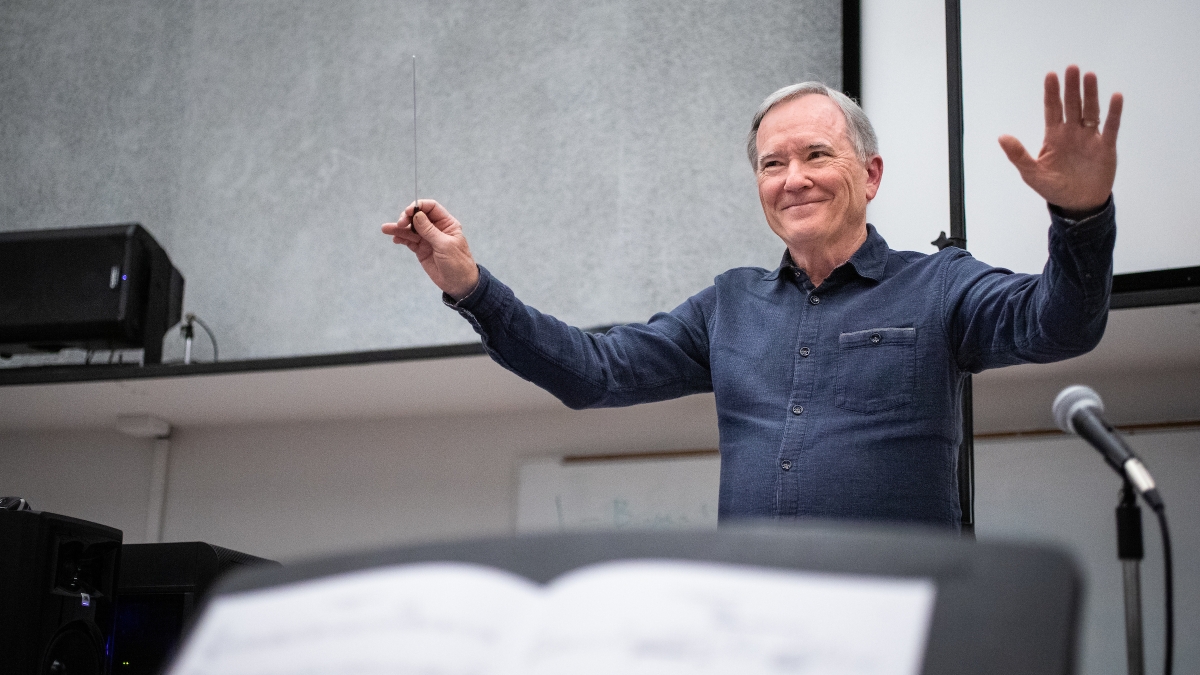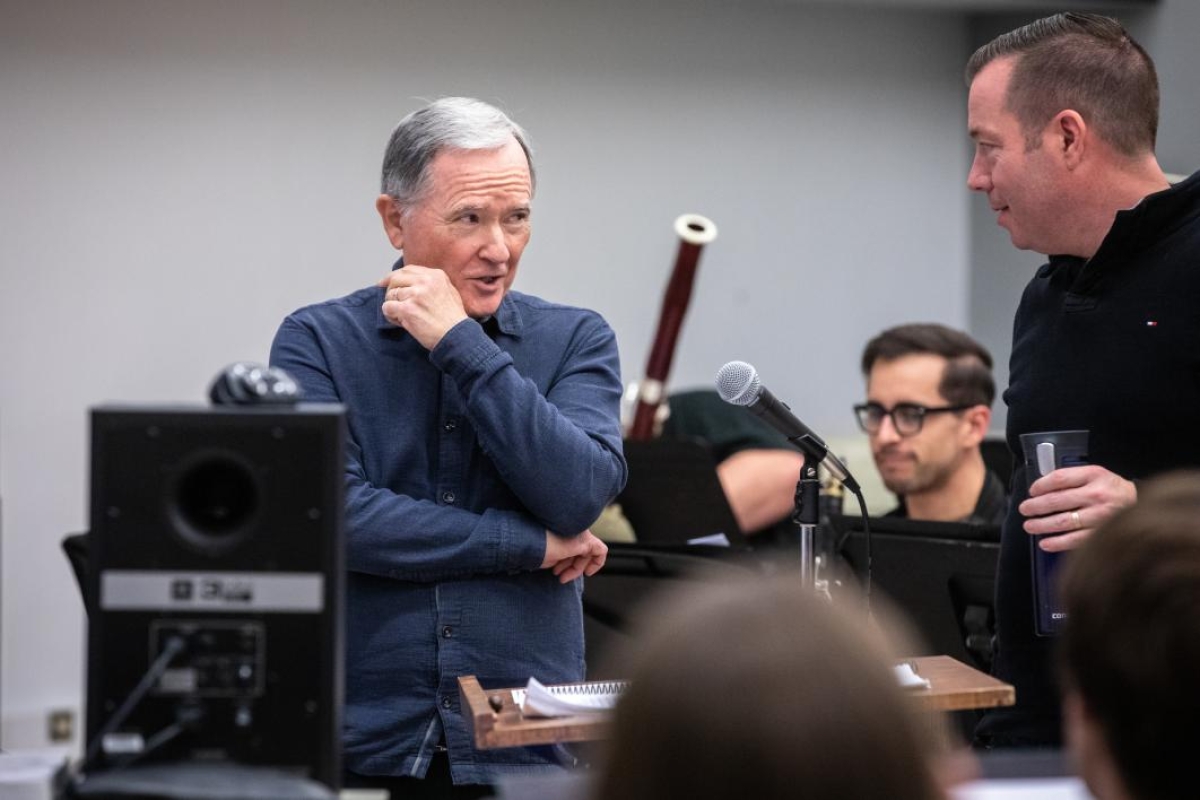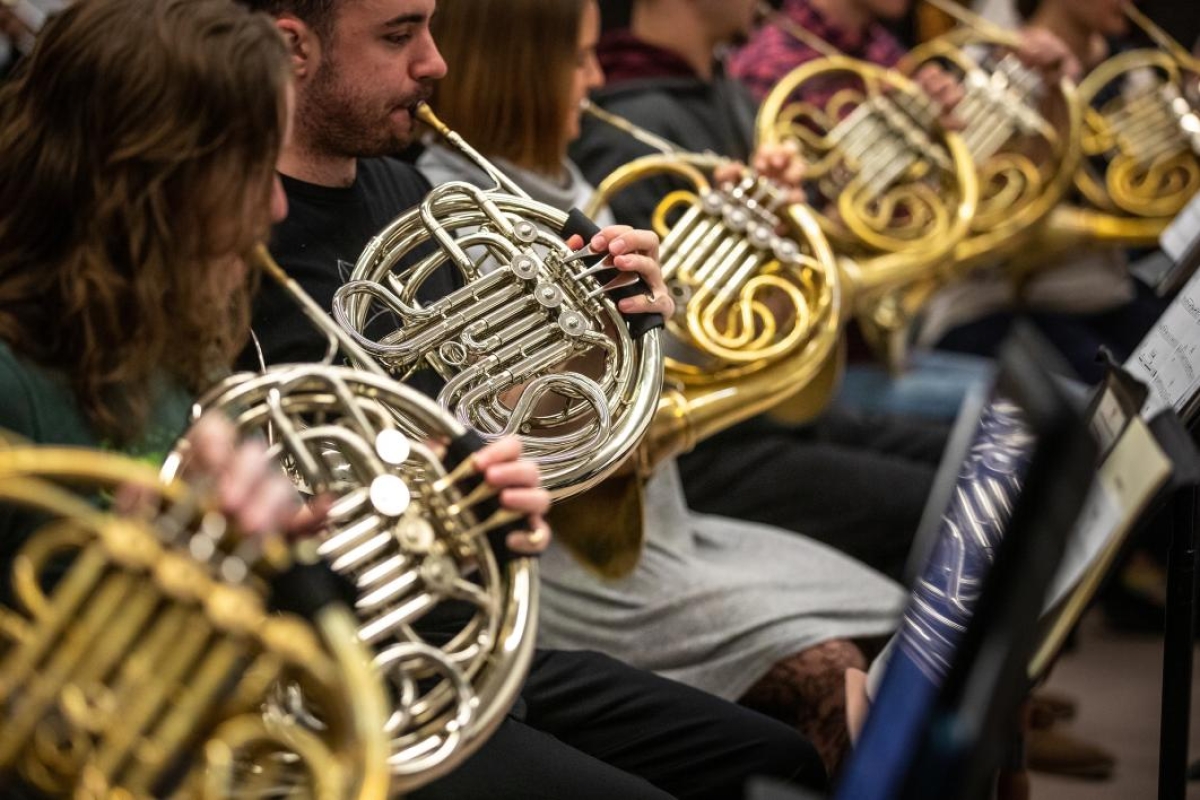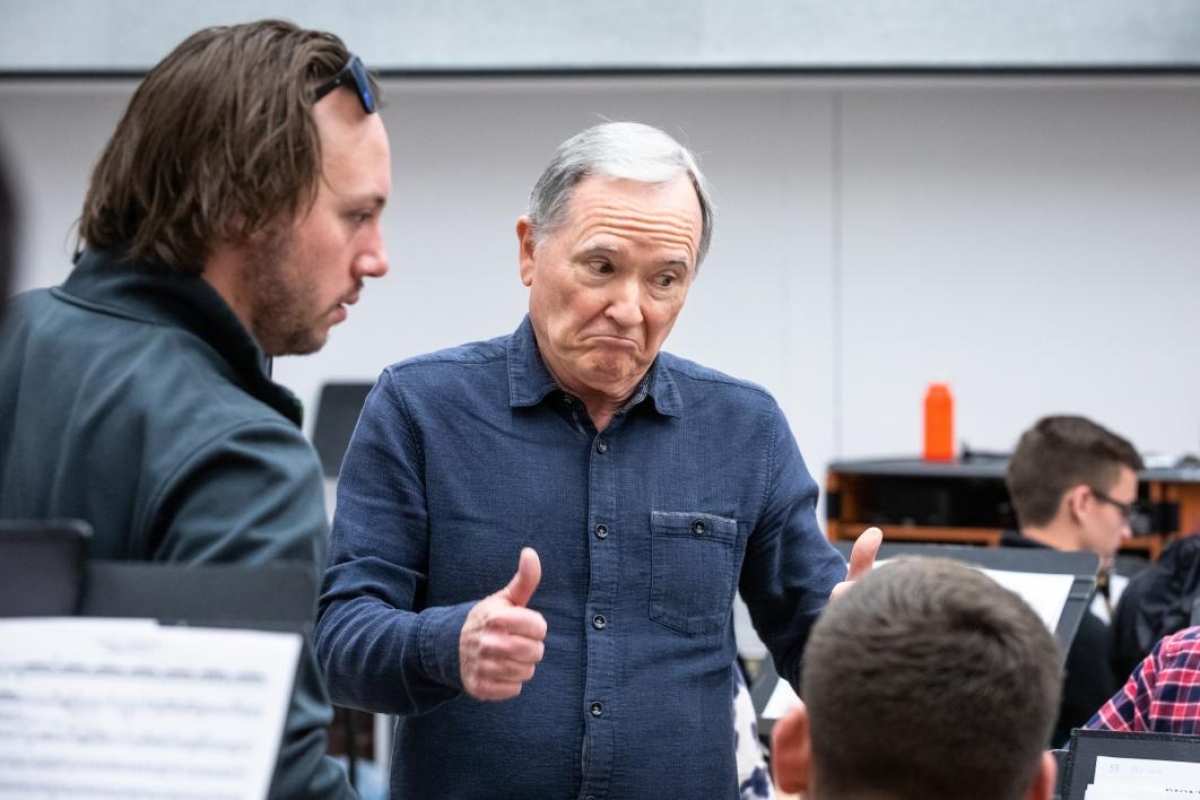Retiring director of bands Gary Hill on the cusp of final encore at ASU

More than 300 college band directors from across the country will gather at Arizona State University this week to talk about music, technology and research and to hear some of the best university concert bands in the country.
The national conference of the College Band Directors National Association will feature 12 performances over four days, including ASU’s wind orchestra, which will perform under the direction of Gary Hill, who is retiring at the end of this semester. He is a professor of music and the director of bands.
In his 20 years at ASU, Hill has seen the campus transformed and the School of Music flourish. He has embraced technology and collaborated on innovative research projects.
“In the arts, our creativity and research is multifaceted,” he said. “We perform a lot on campus and I’ve performed a lot as a guest conductor, a conducting teacher and a clinician. That’s the creative aspect.”
Hill has seen a shift in attitude about majoring in music.
“Students today seek what was at one time called ‘value-added’ education,” he said.
“They want to come to a great school where they study with some of the world’s best studio teachers, where they get to play in some of the country’s best ensembles and where there’s more — they get to take a track in entrepreneurship and they take classes in music production and they get to do a double major. Those are great positive changes,” he said.
Hill teaches graduate-level courses in the School of Music’s conducting program and has seen the quality of students improve over the years.
“It’s not uncommon for students who come to our program to not only have a degree in conducting from another school but to also have attended lots of summer conducting symposia and to have had really good undergraduate training in conducting,” he said.
“We have one of the most unusual conducting programs in that it’s integrated. Students work with all of the conducting faculty as well as their mentor,” he said.
“They leave with a knowledge of all the main areas of conducting, which is helpful in getting jobs and in creating opportunities.”
Jason Caslor, an assistant professor of music and associate director of bands and orchestras at ASU, is a graduate of the program, earning his doctorate in music arts in 2010.
“It’s kind of a surreal place because the level of faculty and the level of the players is so incredibly high that in some ways, it’s almost easy to take it for granted,” said Caslor, who conducts the wind ensemble and the Philharmonia and teaches conducting.
“Not every place in the country can do what we do at the level we do it. I always say that I work with rock stars.”
In his time at ASU, Hill collaborated on several cross-disciplinary research projects. He was part of the team that created the motion-capture lab in the School of Arts, Media and Engineering, thanks to a multimillion-dollar grant from the National Science Foundation. He studied the use of motion capture in teaching conducting.
“The standard way for conducting students to evaluate themselves is to look at a videotape, but when we do that we look at ourselves less objectively,” he said.
“You tend to see flaws in yourself because you’re biased.”
But seeing an image created through motion capture was more objective.
“All of ‘you’ is out of the picture and all you see is a stick figure and you can immediately notice, ‘Look how my shoulder is raised’ or ‘My hands are in a funny position.’”
A few years ago, Hill presented a seminar on using science to improve performance in large ensembles. (One tip: Changing things around increases arousal in the brain and improves focus and memory, so reconfigure the seats during rehearsal.)
Another project involved collaborating with a neuroendocrinologist to study how biomarkers change when making music with other people.
“Those results were published in a number of science journals, which was very exciting,” he said.
Hill has spent the last few weeks preparing the wind orchestra for its performance at the conference, which will be at 7:30 p.m. Friday at Gammage Auditorium.
The orchestra will play seven selections, including the world premieres of two remarkable pieces.
“The Automatic Earth” by Steven Bryant is a dreamy, disorienting piece with vibraphone and harp, which is accompanied by a digital score of beeps, chirps and thumps created by the composer.
“That piece is about the challenges we face with climate change, combined with technology, that’s changing how we view the human,” Hill said.
“It’s art about a significant potential catastrophe and his take on that, and it’s a very powerful piece.”
The other premiere is “Places We Can No Longer Go,” which composer John Mackey dedicated to his mother, a musician who has early-onset dementia. Three years ago, he posted on social media that while his mother could no longer speak complete sentences, she still knew music. Hill saw the post and persuaded Mackey to compose a piece about it.
Hill has performed as a guest conductor around the world and will continue to do so after retiring from ASU.
“I’m contracted to do a lot of things next year, but it will be different from having the daily interaction with really bright students,” he said.
Top photo: Gary Hill, professor of music and the director of bands at ASU, rehearses with the wind orchestra. Photo by Charlie Leight/ASU Now
More Arts, humanities and education

ASU professor's project helps students learn complex topics
One of Arizona State University’s top professors is using her signature research project to improve how college students learn science, technology, engineering, math and medicine.Micki Chi, who is a…

Award-winning playwright shares her scriptwriting process with ASU students
Actions speak louder than words. That’s why award-winning playwright Y York is workshopping her latest play, "Becoming Awesome," with actors at Arizona State University this week. “I want…

Exceeding great expectations in downtown Mesa
Anyone visiting downtown Mesa over the past couple of years has a lot to rave about: The bevy of restaurants, unique local shops, entertainment venues and inviting spaces that beg for attention from…




